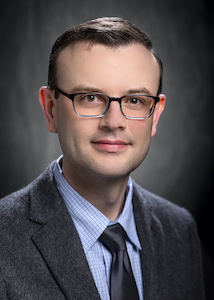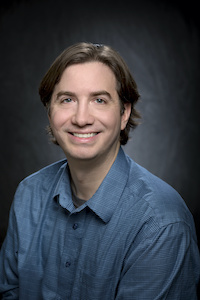Two LSU College of Science Faculty Named Rainmakers
BATON ROUGE— Two LSU College of Science faculty members, who are leaders in their
respective fields, have been selected to receive the Rainmaker Award from the LSU
Office of Research & Economic Development, or ORED.
Rainmakers are faculty members who balance their teaching and research responsibilities while extending the impact of their work to the world beyond academia.
“I want to congratulate each of our awardees for being recognized for their exemplary work. Our faculty continue to show resilience, creativity, and flexibility, and Dr. Vinyard and Dr. Corbitt are exceptional representatives of the College of Science’s mission,” said Robb Brumfield, the College of Science’s associate dean for research & administration.
The Rainmakers include faculty who are at the early, middle and senior stages of their careers. They have established track records in securing external research funding and publishing in high-impact journals.
Here are this year’s College of Science Rainmaker Honorees:

David Vinyard, Assistant Professor of Biological Sciences.Photo Credit: LSU
Emerging Scholar
Science, Technology, Engineering & Mathematics
Assistant Professor of Biological Sciences David Vinyard is exploring how to use the oldest energy source on our planet—sunlight—to create truly green energy on demand.
While solar energy is not a new concept, Vinyard has been looking at harnessing sunlight in an alternative way: through photosynthesis. But there is still a lot we do not know about what happens during photosynthesis, according to Vinyard.
Vinyard’s lab is conducting what he calls “very fundamental research,” tracking the process atom by atom, electron by electron, to map out exactly how the chemical bonds are broken and formed through each minuscule step.
In a recent press release, Vinyard said, “If we can learn the chemical and physical mechanisms used by nature, we can give those blueprints to chemists and engineers to develop clean energy conversion devices. Essentially, we could create an artificial leaf.”
And that artificial leaf could be used for clean energy production.
Vinyard, who received a Department of Energy Early Career Award in 2019 to study energy conversion, also holds a faculty position with LSU’s Department of Chemistry. He has previously received the LSU Alumni Association Rising Faculty Research Award in 2021 and the LSU Phi Kappa Phi Non-Tenured Faculty Award in the Natural and Physical Sciences in 2020.
Prior to joining the faculty at LSU in 2016, Vinyard completed a postdoctoral research position at Yale University. He received both his M.S. and Ph.D. in chemistry from Princeton University.

Thomas Corbitt, Associate Professor of Physics.Photo Credit: LSU
Mid-Career Scholar
Science, Technology, Engineering & Mathematics
Since the dawn of gravitational-wave astronomy began with the historic detection of binary black hole coalescence in 2015—100 years after Albert Einstein’s prediction—and several more detection events that followed in subsequent years, Associate Professor of Physics Thomas Corbitt has been working to understand how quantum effects limit the sensitivity of gravitational wave detectors, in addition to developing precision measuring techniques to improve on this limit.
In work showcased in the scientific journal Nature in 2019, Corbitt and researchers developed physical devices that make it possible to observe—and hear—quantum effects at room temperature. It is often easier to measure quantum effects at very cold temperatures, while this approach brings them closer to human experience.
The research was supported by the National Science Foundation and the results hint at methods to improve the sensitivity of gravitational-wave detectors by developing techniques to mitigate the imprecision in measurements called “back action,” which would then increase the chances of detecting gravitational waves.
He has performed experiments that show the impact of quanta of light, or photons, exerting a pressure on tiny mirrors with a diameter of the width of a human hair.
Corbitt has since continued to work with collaborators in the Laser Interferometer Gravitational Wave Observatory (LIGO) Scientific Collaboration to show how that pressure creates quantum correlations that may be used to perform more precise measurements.
He received his Ph.D. from the Massachusetts Institute of Technology in 2008 and his B.S. from the Georgia Institute of Technology. Corbitt has been a member of the LSU faculty since 2011.
For a full list of this year’s LSU Rainmakers: https://www.lsu.edu/mediacenter/news/2022/03/02ored_rainmakers2021.php